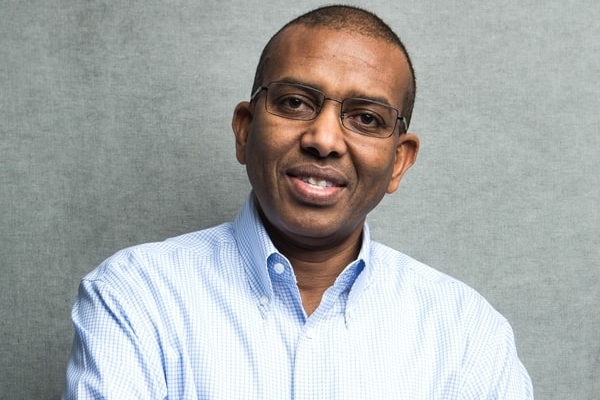By Ismail Ahmed, Founder of digital money transfer company, WorldRemit.
The company was set up in 2010, with the vision of making it easier and cheaper for migrants to send money home by bringing international money transfers online. Today, over 50% of WorldRemit’s transfers go to Africa.
As the dust finally settles on the 74th United Nations General Assembly, one of the themes that remained at the top of the agenda was global inequality. Inequality, alongside climate change, is one of the greatest threats of our generation and as such, a defining issue of our time. Sustainable Development Goal (SDG) number 10, the reduction of inequality, is central to the 2030 Agenda, and innovations in the global remittance sector play a crucial role in helping to create improved access to financial services.
It is no secret that transformative wealth is concentrated within a small percentage of individuals, organizations, economic groups and regions. Studies continue to highlight that the wealthiest 1% of the population holds 45% of global wealth and, with this concentration of wealth, comes a disproportionate concentration of power and influence over the global agenda.
While there have been some significant achievements in reducing financial inequalities around the world, half of the global population living in extreme poverty (on less than $1.90 per day) live in just five countries – India, Nigeria, Democratic Republic of Congo, Ethiopia, and Bangladesh. Reducing inequalities in these countries is essential to global development. One of the ways to reduce this inequality is to increase the availability of affordable and accessible financial resources. This, in turn, increases financial inclusion and provides access to life-enhancing opportunities and services.
Approximately 45 million foreign-born people were living in the USA in 2018, over 3 million of which were migrants from these five countries. Furthermore, according to US Census Bureau data, Africa has the fastest-growing number of migrants in the US.
There is a direct and high correlation between migration and socio-economic development in many emerging markets. Migrant remittances from the United States are estimated to reach over $68 billion in 2019, and are a lifeline for families and communities and a key driver of development.
Until recently, sending money has traditionally been expensive and logistically time consuming. This has resulted in obstructive barriers and billions of dollars caught up in fees as opposed to being received and utilized where the money is needed the most. Reducing these transaction costs for both senders and recipients is a key part of financial inclusion that policymakers are focused on achieving. Innovation in Financial Technology or Fintech is directly addressing this by revolutionizing the way we interact with money, making the world more financially inclusive. Nowhere is this more evident than in the way we transfer money. By digitalizing international money transfers and making the process cashless on the sending side, online money transfer companies such as WorldRemit are making sending money as easy as sending a text message. This significantly lowers transaction and service costs and eliminates the time (and further costs) in traveling to an agent.
On the receiving end, WorldRemit offers a variety of convenient ways to receive money including bank deposit, cash collection, mobile airtime top-up and mobile money. Mobile money is a service that allows users to send, store and receive money on a basic mobile phone, without the need for a bank account or internet connection.
By making it easier to send and receive remittances, Fintechs are able to give previously underserved populations better access to financial services. Approximately 1.2 billion of the 1.7 billion unbanked adults globally own a mobile phone, meaning they potentially have access to formal financial services for the very first time.
Fintech will continue to increase financial inclusion by providing the ease, convenience and low cost of fully digitalized transactions for cross border transfers. With this newfound ease of money transfer comes increased and more frequent remittances helping families and communities back home to become more sustainable, resilient and developed. This, in turn, has a halo effect of increased socio and economic development across multiple sectors that include the SDG’s of improved healthcare, better access to quality education, the elimination of hunger and more.
Reducing inequalities is unquestionably one of the greatest challenges of our time. While it will require collective action, we are dedicated to leveraging continued financial innovations to drive financial access and inclusion, improving the quality of life for families and communities to positively impact society and the world at large.

Ismail Ahmed is the founder and chairman of WorldRemit. Ahmed was born and grew up in Somaliland. He worked for a World Bank agricultural development project in Hargeisa, Somaliland, and was awarded a World Bank scholarship to study economics in the UK.
WorldRemit Ltd. provides payment and transaction processing services. The Company offers financial solutions such as online money transfers through bank deposits, cash pickup, and mobile money. WorldRemit serves customers worldwide.

